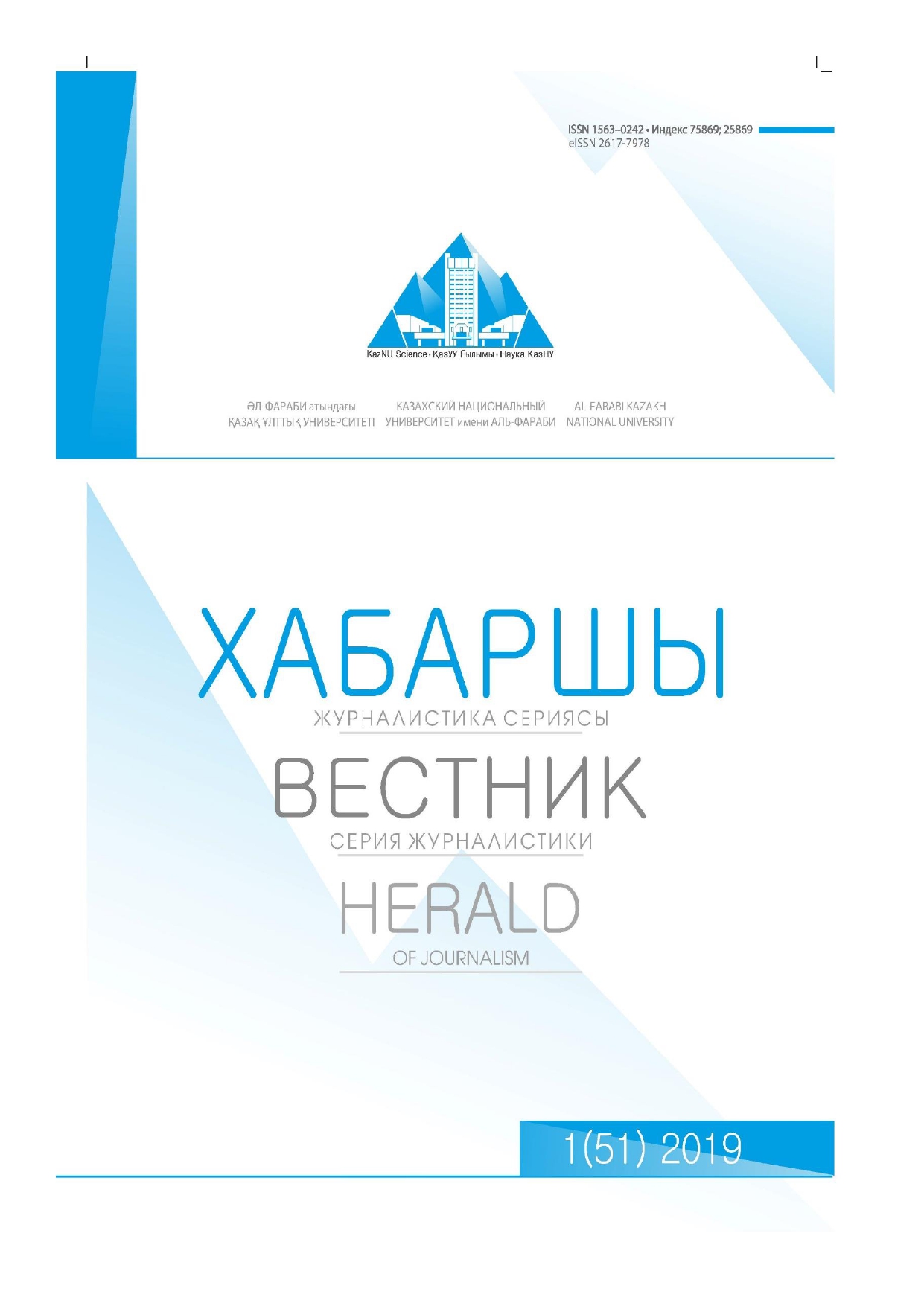Media literacy: critical analysis of information
DOI:
https://doi.org/10.26577/HJ.2019.v51.i1.09Keywords:
media literacy, fake information, fact-checking.Abstract
The article deals with the role of media literacy in the formation of media culture. In modern condi-tions of media environment and activity of social networks the spread of fake news has become com-monplace. In such circumstances, it seems appropriate to verify the information disseminated.
The purpose and the main idea of the work is to show the need for media literacy in modern society. Tasks: study of empirical data, works of foreign and domestic scientists; analysis of foreign and domestic
tools of information research; assessment of the current state of media literacy in Kazakhstan. The object of research is media literacy as the basis of medical culture. The subject of the research is publications of mass media and social networks.
The scientific value of the work is the analysis of the conceptual apparatus of media literacy, the definition of the need to study the state of media literacy as the basis of media culture. From a practical point of view, this work can be useful both for media and social media workers and for the public.
The basis of the study is the analysis of information flows, ways to determine fake news that can have serious negative consequences. The methodological basis of this work was a set of methodological approaches that allowed at the theoretical and practical levels to analyze the state of medical literacy at the present stage. General scientific methods were used to study media pollution and public awareness of fake information. In the course of the study, scientific works of domestic and foreign experts, materials of scientific conferences, review and monitoring of the media, as well as the results of media measure-ments were used.
Preserving the norms of media culture directly depends on the ethical principles of journalists and bloggers. By allowing unverified material or conjectures to be published, they create a favorable environ-ment for spreading rumors, panic, and distorted information. A journalistic text is not only an information communicator, it is also a means of social orientation that forms public opinion. Fake news pollute the informative space, form negative public opinion and stereotypes. Therefore, today being media literate is becoming an integral part of human life. For what it seems necessary discipline “Media literacy” in schools and universities. Also a good help in educating the public in determining fake information would be sites and training materials on fact-sharing.




